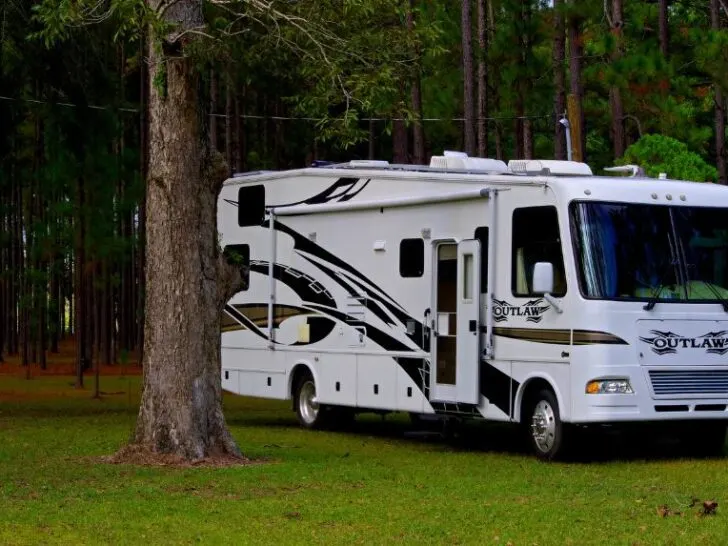Here are easy methods to make your RV engine last longer. We have also added the average span of RVs.
How Long Do RV Engines Last? A standard RV engine lasts from 16 – 24 years or an average of 250,000 to 350,000 miles. Few of them can live up to 26 – 29 years with maximum reserve qualities. Regularly maintained RV engine lasts for many years without any damage. It all depends on the service and protection of the machinery.
How Long Do RV Engines Last?
You can maintain your RV and its engine life in numerous ways to make them last longer. A few of them are as follows:
Service
The service of an RV engine means taking care of the machinery. It is a process that includes the cleaning of all the automatic machinery.
The parts accumulate dirt and grease inside them. Service of a recreational vehicle comprises the washing process, in which you should take professional help.
The pressure water pumps reduce all the contamination, and the machinery appears new and excellent. The removal of greasy matter increases the efficiency of all engine parts.
The professional person knows every bit of the process, and there are minimum chances of error.
Change parts
There are few parts of the engine area that get vulnerable with time. Excessive use and long-distance traveling suppress them. They lose their power to work efficiently, and replacement is the only option.
In those circumstances, when the owner does not change these components, and the whole system starts damaging. It is essential to replace these tiny things with new things.
Maintain the engine
Maintenance of the engine itself is one of the essential steps. It not only enhances the working capacity of the RV but also makes the system efficient.
Check the mileage of the engine and then take it to the service station. Never leave the engine in low mileage conditions because it harms the machinery.
The machines of the RV are far more luxurious than any other home motor. They comprise diesel in them, and it is helpful for their work efficiency.
Check the cooling areas of the engine and if they require service, then do it instantly. Installing the coolant in the machinery is one of the advantages to increase the life span.
Service of roof areas
The longevity of an RV depends on the maintenance and efficiency of the roof area. It includes metal and fiberglass material that are safety barriers.
They prevent damage to the roof area. The manufacturers offer warranty cards, and the roof lasts for 11 – 16 years. Maintain and service the roof area of an RV every five to eleventh months.
Any damaged or leaking roof leads to irreversible disasters. The uppermost surface keeps the lowermost area in the best condition.
Repairing the RV roof is a better option than its replacement because that is a costly process.
Settle and change tires
The tires play a role in the exact working of the engine area. Always check the pressure of the tires with time, and keep them in the best possible condition in appearance as well.
The damages or burst tires require more dragging power as compared to a tool. They suck excessive energy from the engine and make it vulnerable.
The engine loses its efficiency more speedily than in normal conditions. It is an uninviting situation that leads to the replacement of tires. The replacement of such tools involves a lot of investment and time.
RVs are expensive in terms of tires. Maintaining the pressure is far easier than changing them. The replacement process makes the engine new and efficient, and it gets all the necessary power to work.
The life efficacy increases with this process, and take the vehicle to the maintenance workshop every month.
It also helps to keep the system inaccurate working conditions. The service charges may cost you a bit, but they are lesser than the other alternative methods.
Service the generator
A generator plays a remarkable role in the work efficiency of a vehicle. These devices pull more power from the energy area in their worst conditions.
It is not suitable for an engine’s lifespan; they work with power and lose their efficiency.
If you keep the tool in the condition all the time, then the RV engine also remains in fantastic scenarios. It is directly proportional to the vehicle’s power and work.
The system becomes more efficient, and it needs less maintenance. As an RV keeper, it is your responsibility to bring the vehicle to a service station.
The professional mechanics change the oil of the generator every time. It keeps in its best condition, and the engine gets the direct impact.
The controlling tool works smoothly without any excessive power. There is no need for pulling of power exertion. The system gets smooth and easy.
The driver feels more comfort in traveling than before. Take the generator for service every six months. Keeping it in bad condition is a loss than the repairing and maintenance cost of the generator.
Maintain the batteries
The batteries are a super component of the RV, and they offer power to all the electrically generated things.
The tools lose their efficiency due to the production of toxic substances. The sulfates and lead are deadly for the battery’s internal process.
When you keep the battery in a non-charging condition, and its basic level falls drastically. The electrolytes balances destroy, and replacement becomes the only possible option.
The negligence in temperature maintenance makes the battery worst.
The system gets miserable because the high-temperature limits are not suitable for them. The high ranges decrease the life span of the battery, and it links with the engine.
The batteries offer power to those parts which are tiny in appearance. The automatic windows and defrosters get their power through the battery. When it stops working or performs inefficiently, they try to get electric current directly from the machine.
The air conditioners of the RVs are multiple in numbers. They require electrical power through batteries, but they lose their electric power due to dirt and low charging. It leads to engine power action that reduces its lifespan.
Which RV engines last longer?
The diesel engines of RVs have a vast life range. They work on low rotations per minute, and all of the diesel engines are better than the casual gas engines.
One of the ways to get the best efficiency is to use diesel engines in your recreational vehicle. These devices require particular roofs with maximum power.
The roofs of fibrous glass material are one of the best options to increase longevity. The engines with air streaming last longer than many other models.
The manufacturers are increasing the lifespan property with every passing year. The modifications in the machinery and its parts increase their efficiency and work power. Maintenance and service is the key of the whole process.
Related Articles:
Why is my RV electric bill so high?

